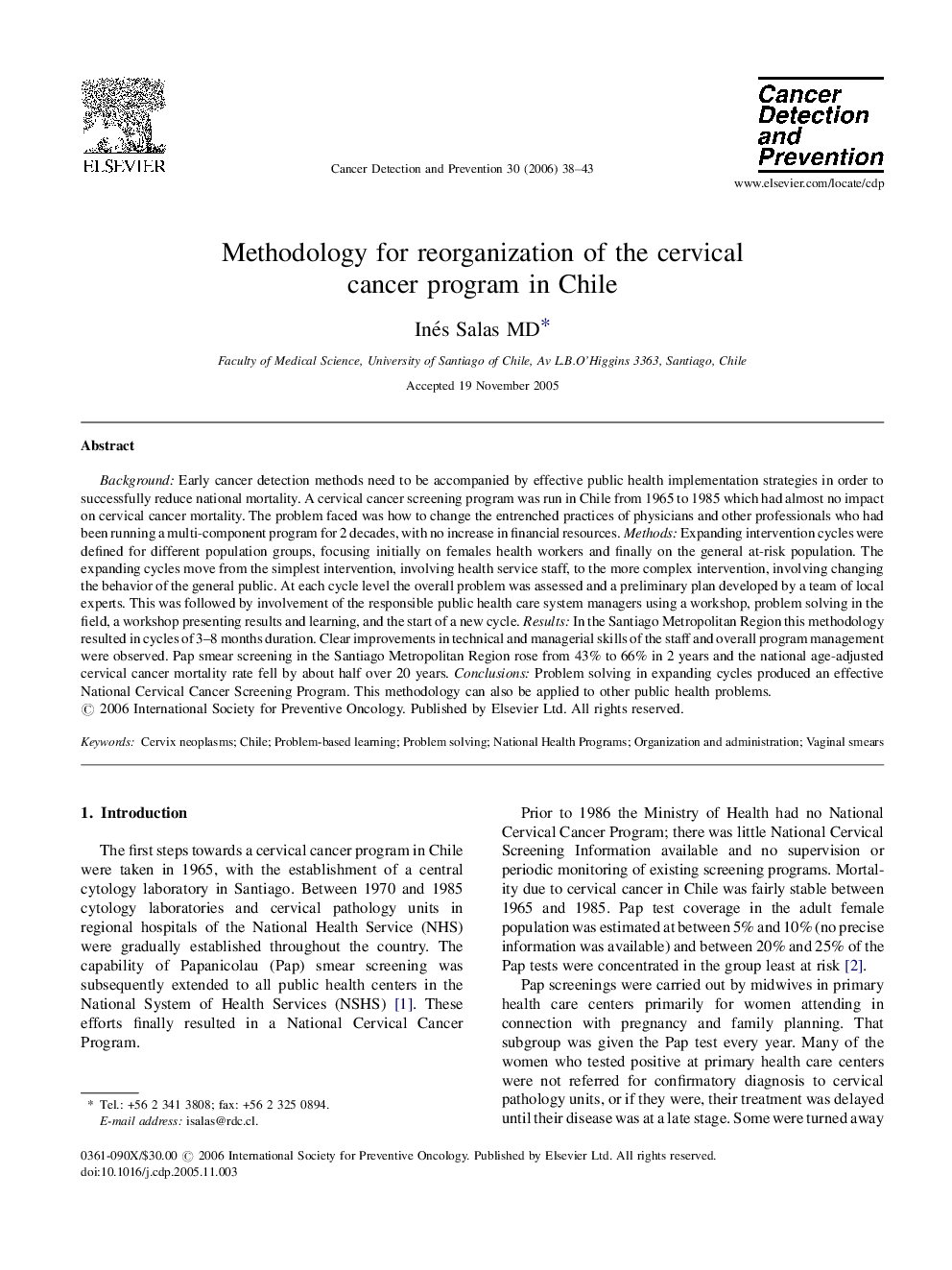| Article ID | Journal | Published Year | Pages | File Type |
|---|---|---|---|---|
| 2108772 | Cancer Detection and Prevention | 2006 | 6 Pages |
Abstract
Background: Early cancer detection methods need to be accompanied by effective public health implementation strategies in order to successfully reduce national mortality. A cervical cancer screening program was run in Chile from 1965 to 1985 which had almost no impact on cervical cancer mortality. The problem faced was how to change the entrenched practices of physicians and other professionals who had been running a multi-component program for 2 decades, with no increase in financial resources. Methods: Expanding intervention cycles were defined for different population groups, focusing initially on females health workers and finally on the general at-risk population. The expanding cycles move from the simplest intervention, involving health service staff, to the more complex intervention, involving changing the behavior of the general public. At each cycle level the overall problem was assessed and a preliminary plan developed by a team of local experts. This was followed by involvement of the responsible public health care system managers using a workshop, problem solving in the field, a workshop presenting results and learning, and the start of a new cycle. Results: In the Santiago Metropolitan Region this methodology resulted in cycles of 3-8 months duration. Clear improvements in technical and managerial skills of the staff and overall program management were observed. Pap smear screening in the Santiago Metropolitan Region rose from 43% to 66% in 2 years and the national age-adjusted cervical cancer mortality rate fell by about half over 20 years. Conclusions: Problem solving in expanding cycles produced an effective National Cervical Cancer Screening Program. This methodology can also be applied to other public health problems.
Keywords
Related Topics
Life Sciences
Biochemistry, Genetics and Molecular Biology
Cancer Research
Authors
Inés MD,
